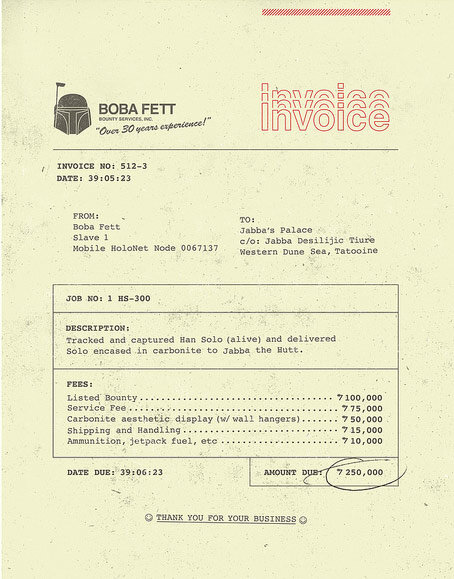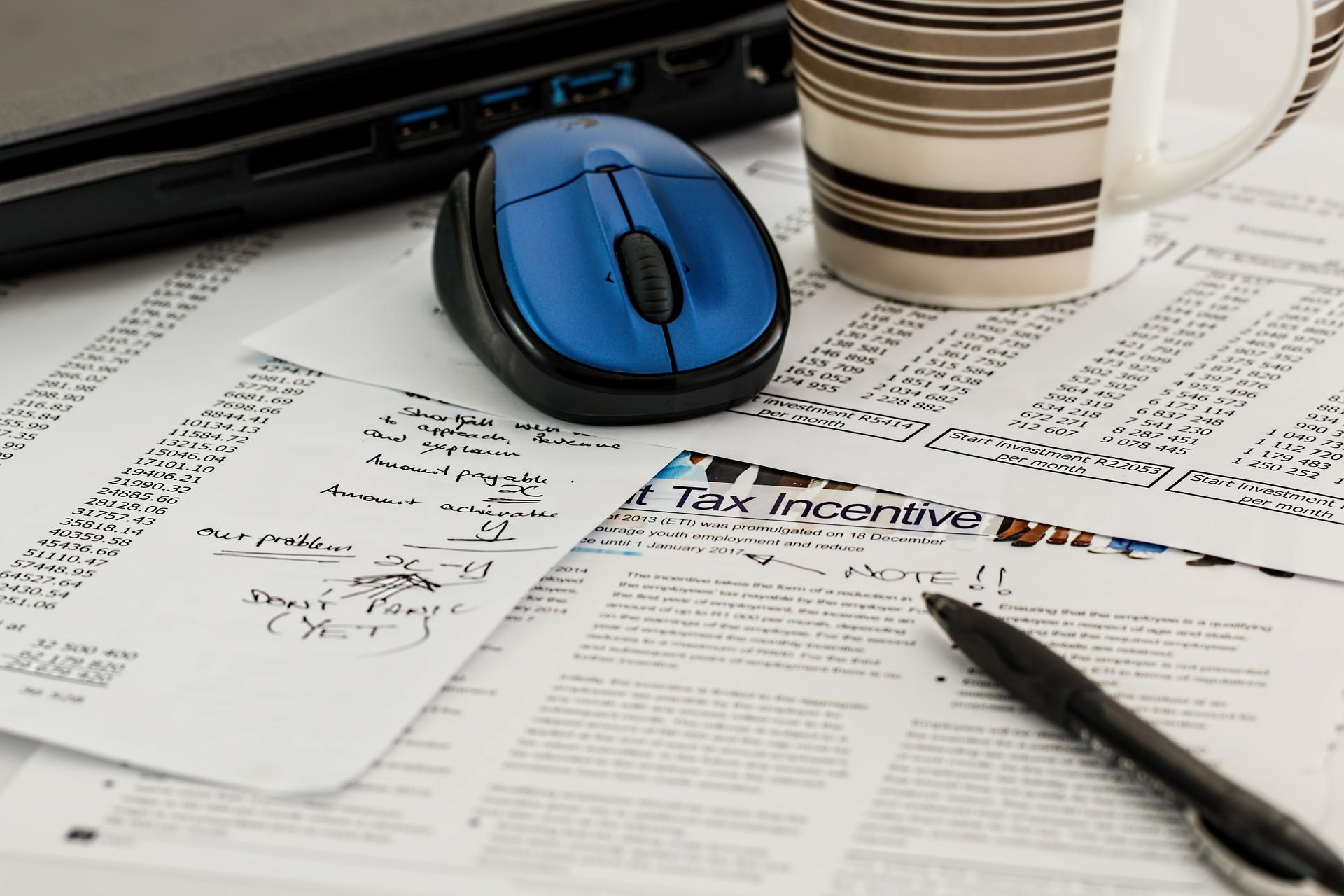
What Small Business Owners Should Know about Leasing vs Buying their Car, Corporate Ownership of Vehicles and Deducting Car Expenses

Should you Register or Incorporate Your Small Business?
When embarking on a new business venture one of the first decisions that has to be made is the type of legal structure best suits the needs of the new business. In Canada there are essentially two choices - business registration (sole proprietorship or partnership/unincorporated entity) or incorporation. Like many small business decisions, the answer in not necessarily straightforward and depends on the business owner’s specific set of circumstances:

Tax Deductions vs Tax Credits and 5 Tax Deductions to Help Reduce Your Tax Bill
Most taxpayers use the terms tax deduction and tax credit interchangeably. Since they are not accountants, this is perfectly fine unless you are particular about precision and strive for a greater understanding of tax. And while there a numerous technicalities and jargon in tax that are better left to tax professionals, this particular distinction is fairly straightforward , can useful to understand and might even save you some tax.
So, what is the difference? A tax deduction is a reduction of your net income on which your taxes payable are based, while a tax credit is a direct reduction of your taxes payable. These might sound very similar, but their impact on how much tax you pay is different. Since there are different tax brackets, a tax deduction results in a reduction of your taxes payable effectively at the highest tax bracket to which your income applies, while a tax credit (for simplicity we are only talking about the federal portion and not provincial) will only reduce your taxes by 15%, which corresponds to the lowest tax bracket. While this can get significantly more complicated, suffice it to say, if your income exceeds approximately $50k, tax deductions have a higher value i.e. they reduce your taxes by a greater amount than a tax credit since part of the $50k will be taxed based on a higher tax bracket.

9 Tips for Building a Sales Forecast
Having a dynamic, regularly updated sales forecast can be essential to the success of a small business. By forecasting your sales revenue you are helping to control for its unpredictability, an inherent risk in any business venture, and prepare for the decisions that are essential to your business profitability. Whether your sales are increasing, decreasing or static, it is always better when decisions are made proactively rather than reactively.
Building your small business sales forecast can be as simple as you want it to be and does not require an accounting degree , particularly when your business is in the early and/or startup stages. Below are some tips to help you create your sales forecast:

What Are the Next Steps After Incorporation
Once you have decided to establish a new corporation, there are certain best practices that you should implement to ensure that your corporation runs smoothly right from the beginning. If you are transitioning from a sole proprietorship to a corporation (unincorporated to incorporated entity), there are some additional steps that you need to take. By being proactive, you can turn your mind to your actual business and avoid unpleasant surprises (such as incomprehensible letters from the government and inconvenient deadlines). This article looks at the next steps you need to take after you have incorporated your business.

Financial Roadmap for Employees Transitioning to Self-Employment
Deciding to transition from being an employee to self-employed business owner/freelancer/independent contractor. can be a significant life event. It can certainly be exciting as you relish the thought of greater freedom, flexibility and the ability to exercise your creativity in ways that you cannot when you are an employee. However, there is also a great deal of uncertainty, both professionally and financially. And while you cannot control the outcome, understanding where the uncertainty might come from will help you be much better prepared.

A Guide To Payroll Deductions for Employees and Employers
So, if you have ever been an employee in Canada, you have received a paycheque. The salary or hourly rate is decided upon by you and your employer. Your employer is then responsible for calculating the deductions required by Revenue Canada (and Revenue Quebec for QC based employees) and remitting them to the revenue agencies. They must also complete the T4s (and RL1s in Quebec) for the full year and give them to the employees by February 28th of the year following the year of employment (regardless of termination date during the year) and ensure that they give them to you so that you can complete your tax returns.

Top 5 GST/HST Mistakes (and How to Avoid Them)
Whether you have just started your business venture or have a couple of years under your belt, navigating GST/HST can be confusing and stressful. There’s is lots of information on the internet but hard to know if it is trustworthy or comprehensive. Consequently, it's easy to make mistakes that results in time wasted or worse, unnecessary interest, penalties and letters from the government. From registration errors to missed deadlines, you can avoid these mistakes with the right knowledge.
In this post, I'll walk you through the five most frequent GST/HST mistakes I’ve seen (in my fairly extensive experience as a small business accountant) and share some tips on how to avoid them.

What Small Business Owners Need to Know About Income Tax Instalments
Transitioning from being a full time employee to small business ownership or self employment means that you need to cultivate self discipline. You can no longer rely on your employer to take care of business functions that do not relate to your job ,and must take a much more active role in ensuring that you remain on top of your obligations whether it is collecting payments from customers, paying bills or ensuring that you do not run afoul of Revenue Canada. One of these obligations requires that you calculate and pay the full amount of your income taxes when you file your income tax return, rather than having your employer remit deductions from your paycheck directly. In addition to having to calculate and pay your income tax, once you exceed a certain income threshold, you are also required to pay income tax and sales tax instalments.

What Unincorporated Small Business Owners Need to Know about Filing Their Taxes
Being a small business owner comes with challenges, not the least of which is doing your taxes. While most Canadian taxpayers have relatively simple tax returns that can easily be completed using software, small business owners have the additional burden of reporting details relating to their businesses. This can seem onerous, but understanding what needs to be done, and when, can significantly help reduce the stress and ensure that the tax filing process is smooth and straightforward.
One of the types of income on which you pay income taxes is what Revenue Canada (CRA) refers to as “income from self-employment” that is essentially the same as income from a small business. If you do have business income, then you are required to declare your business income on a tax return. As an unincorporated small business owner, this business income is reflected on a separate schedule on your personal tax return. The schedule is called a T2125, which is a “statement of business activities” (discussed below) and at minimum requires that you show any income you earned from a business venture. If you have incurred expenses to earn the business income, you may also deduct these from your gross revenues or sales to arrive at net income from business. Unlike a simple personal tax return with no business income, the information that must be reported on a T2125 is generally not simply provided to you on a tax slip, such as a T4 or T5, but must be compiled and calculated.

How to Read a Profit and Loss Statement
Whether you're just starting out or a seasoned business owner, it is imperative to understand the financial health of your business. This can be done via a variety of different types of analyses. In terms of the big picture and overall performance of your business, the reports that are collectively referred to as the financial statements are the most crucial .
The financial statements typically comprise three reports: the balance sheet, profit and loss statement and statement of cash flows.
Some of you might be intimidated by the technical terminology of accounting. But, in reality , the profit and loss statement (also know as the income statement) is actually quite easy to read and understand especially as it relates to your own business.

5 Reasons Your Small Business Needs an Accounting System
So, what exactly is an accounting system? At its core, an accounting system is a method of organizing your financial data. There are various types of accounting systems out there, ranging from complex enterprise solutions to simple small business accounting software like QuickBooks. You can even use a spreadsheet if your business is straightforward with minimal transactions. The key is to have some system in place to manage your finances effectively.
Now, let’s explore the five reasons why every small business, including yours, needs an accounting system.

9 Tips For Managing Your Customer Receivables
Any sales that occur within a business where payment is not made up front (eg. retail) or in advance of the sale (eg. down payment for a car), is reflected as an “Accounts Receivable”, which is accounting terminology for amounts owing by customers to a business. It is good to have accounts receivable, as this means you are generating sales. The downside, however, of having accounts receivable is that it represents cash that you don't have now, and along with that comes the possibility that your customers won’t pay you. Luckily a good system to manage your accounts receivable will help to reduce the number of non paying customers thereby avoiding bad debts. Below are some steps to help manage and collect on your accounts receivable:

10 Financial Challenges of Being a Solopreneur
Being a solo entrepreneur or solopreneur (to use the pithier term) can be extremely rewarding but also brings some unique challenges. It can be a lonely existence, as you often work from home, and don’t have a water cooler where you can discuss the latest tv show you are watching. You have to become an expert on subject matters well outside of your subject of expertise, as all of us who have to troubleshoot a computer problem or write our own copy for social media and blogs, can attest to. There is no-one immediately availably to bounce ideas off of. And we have to work much harder at establishing process, routines and accountability since we don’t have a boss breathing down our necks.
In addition to all of this, solopreneurs often face specific accounting, tax, and finance challenges.

20 Essential Tax Facts for Small Business/Self Employed Owners
Probably the most popular question posed to accountants and tax preparers (especially around this time of year) is what types of expenses are deductible. The short answer is that an expense is considered to be deductible if it has been incurred with the ultimate purpose of earning income. For example if you purchase a domain name with the intent of setting up a website to sell your goods or services, this would be a deductible expense. However, if the purpose of your website is simply a place to show pictures of your cat, this would not be considered a business and therefore not a deductible expense. Of course if your cat picture website starts to become popular and you decide that you want to actively build this business by advertising on the site or partnering up with cat product resellers, your non commercial hobby could then be considered a business. Since you now have the intent to build a business the income earned would have to be reported and expenses incurred to earn this income would be deductible.
